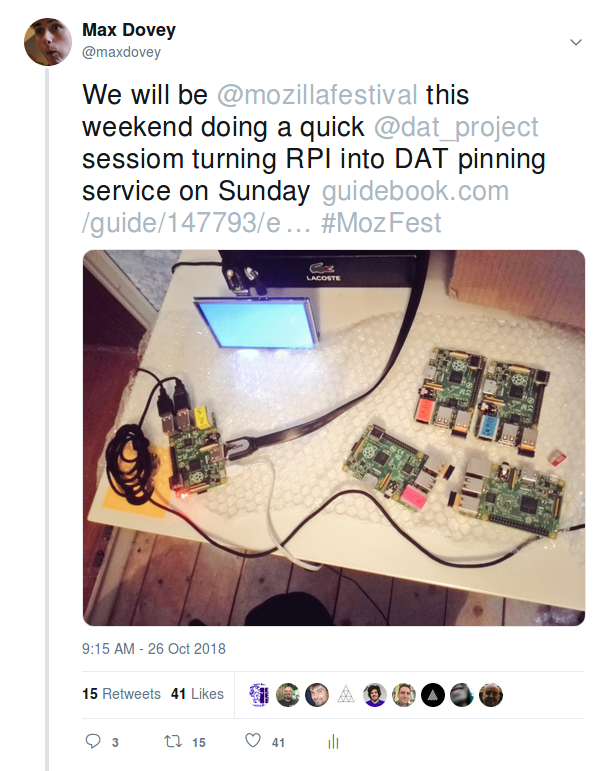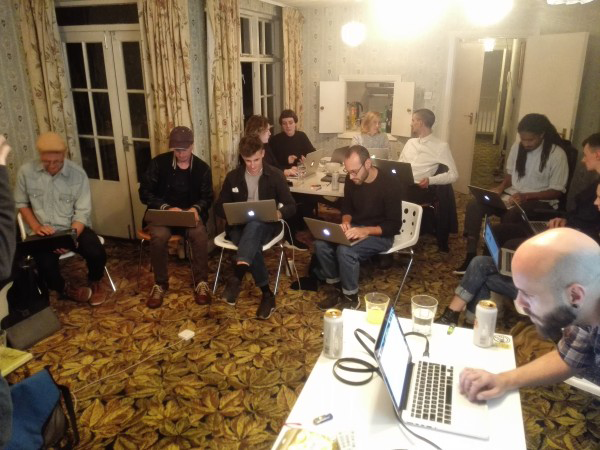Scuttlebutt-haloween-hackathon & Mozfest

Back on Thursday 18th October we invited Kieran from Ten Thousand Things and Andrea Garzia to lead an introduction to the distributed messaging application Scuttlebutt. The workshop cleverly demonstrated some of the core features of Scuttlebutt and also showed how friends and feeds work on the platform. Kieran and Andrea made a x3 hotspots that were not connected to the internet, just local networks called MARS, EARTH and SPACE. The room divided into different groups depending on what wifi network you connected to. This demonstrated how Scuttlebutt synchronizes between client computers without requiring an internet connection or ISP (Internet Service provider) essentially offline communication. HOWEVER, we on mars could not read or see any of the communication of the earthlings because the syncornization of SSB archives (essentially the chat log) was just taking place between all the people on EARTH. Without wanting to give the whole workshop away, lots of encounters play out over the distributed messaging application scuttlebutt and is a good way to exercises the actual realities of using offline, distributed communication networks. Some thoughts - news is no longer immediete, it syncronises when your friend that you follow logs on and your filter bubble is determined by who your friends follow. There is lots of interesting values and principles to explore in this emerging community around p2p offline messaging and lots to read here in the meantime, we will be using #agorama hashtag on the scuttlebutt platform to post updates.
my public id is @nFI7K8BdTK1lZkI/7blGu5dJ+aPnx5zG/S6Qy5IW0Hc=.ed25519

Last sunday myself and Ali participated in the brilliantly weird and wonderful mozfest and saw many friendly faces there. The whole program was incredible, so much going on on every floor - I was only there on Sunday but some of my highlights was learning about the Web of Things - Mozilla’s open source initative for IOT offering resources and modules to build and hack IOT devices using rpi as an internal gateway. I want to spend some time playing with this! We spent an hour introducing anyone who was unfamiliar to DAT and beaker browser before attempting to configure DAT pinning services using homebase on a RPI. Unfortunately the ports that DAT use (3282) were blocked by the wifi firewall so we had some technical issues and found it quite difficult to demonstrate what we talking about and why we liked DAT protocal in the first place. Unfortunately we didnt get futher than people creating and seeing each other’s dat archives for this one hour long workshop, however we did install all the dependencies required to turn a Raspberry pi microcomputer into a DAT pinning service. For anyone interested in doing this, come to our next meet-up on Thursday 27th November or also check out the tutorial guides on our site - DAT URL HTTP please be aware its all in markdown so best viewed with a markdown viewer or in BEAKER. Our friend Piper has also published some useful notes on setting up a DAT server on her research blog here

